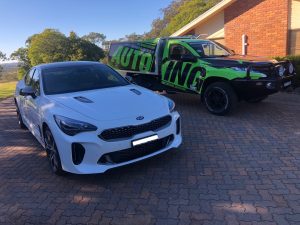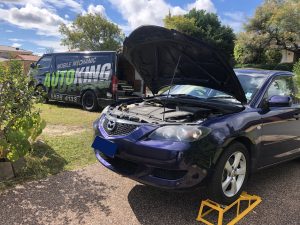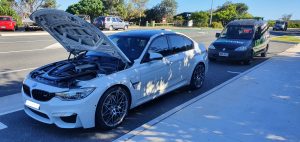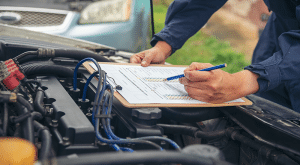You’re going for your normal drive, but start to notice a horrific grinding sound every time your vehicle makes a turn. It’s only natural to be alarmed, but chances are it’s something that can be replaced or repaired.
Cars move around by means of the steering wheel, which controls the front wheels. As a mechanical instrument made up of moving parts, your car makes a number of sounds while in operation. However, grinding noise when turning left or right shouldn’t be one of them.
What causes a grinding noise when turning the steering wheel?
A car is made up of moving parts, and some of them are located in the steering and suspension systems. Any one of these components malfunctioning can result in a grinding noise as you turn the steering wheel.
Faulty power steering rack
The power steering rack connects the fuel and electrical systems together, assisting you in turning the wheel with minimal effort. When noises appear as you pull the steering wheel to the left or the right at low speeds, it’s probably the power steering rack that needs to be fixed or replaced.
Worn-out shock absorbers
Engineered to support the weight of the vehicle, shock absorbers, and struts should ideally last for a long time. But real-world usages such as frequent exposure to ruts and bumps can accelerate the wear and tear on suspension components, leading to premature damage.
Broken steering column bearing
A grinding noise during maneuvers could warrant inspecting the health of the steering’s upper bearing. It’s especially vulnerable during hot and humid weather which adds to the heat generated by the car’s operation. As a result, the steering column could expand and cause the plastic parts to rub against other components, producing sound.
Malfunctioning tie rod ends
The tie rods enable the wheels to respond to the input from the steering wheel. Over time, tie rods can become loose, damaged, or worn from excessive use. Consequently, this will make the steering wheel produce noticeable grinding or creaking noises that can be audible not just to the driver, but to the passengers as well.
Dry ball joints
Ball joints link the control arms and steering knuckles to help maintain the car’s control while running at a variety of speeds. To do this properly they need to be properly lubricated. If the lubrication on the ball joint dries up, this can increase friction between the ball and socket, causing the grinding noise.
Dry front strut bushings
Jounce bushings on the front struts dampen the shocks and bumps that a car endures on a regular basis. Eventually, the bushings will dry out, or a particularly nasty bump might be too much for the lubrication to dampen. When this happens, the vibration will become stronger and the joints will move excessively.
Worn control arm bushings
The wheel hub and steering knuckle are connected to the vehicle’s frame by means of the control arms, with bushings located at the joints between the upper and lower arms. These bushings are meant to absorb shocks and vibrations, but when these impacts build up over time, the parts will eventually be damaged, causing the grinding noise when you turn the steering wheel.
Damaged steering shaft joint
The wheel and steering rack are connected by a joint that straightens the steering shaft. Regular wear and tear can break down this component prematurely. When the joint has stopped moving properly, the steering wheel can end up being stiffer than usual, apart from producing a grinding noise.
While some noises may not be too serious and easily fixed, others can point to more sinister problems that make your car unsafe to drive or unreliable. Either way, if your car is moaning and groaning–bring it in and get it looked at by a reliable mechanic right away.
Auto King Mobile Mechanic can come to you for any vehicle repair, service, roadworthy certificate, and inspection needs. Call us for a free quote!





